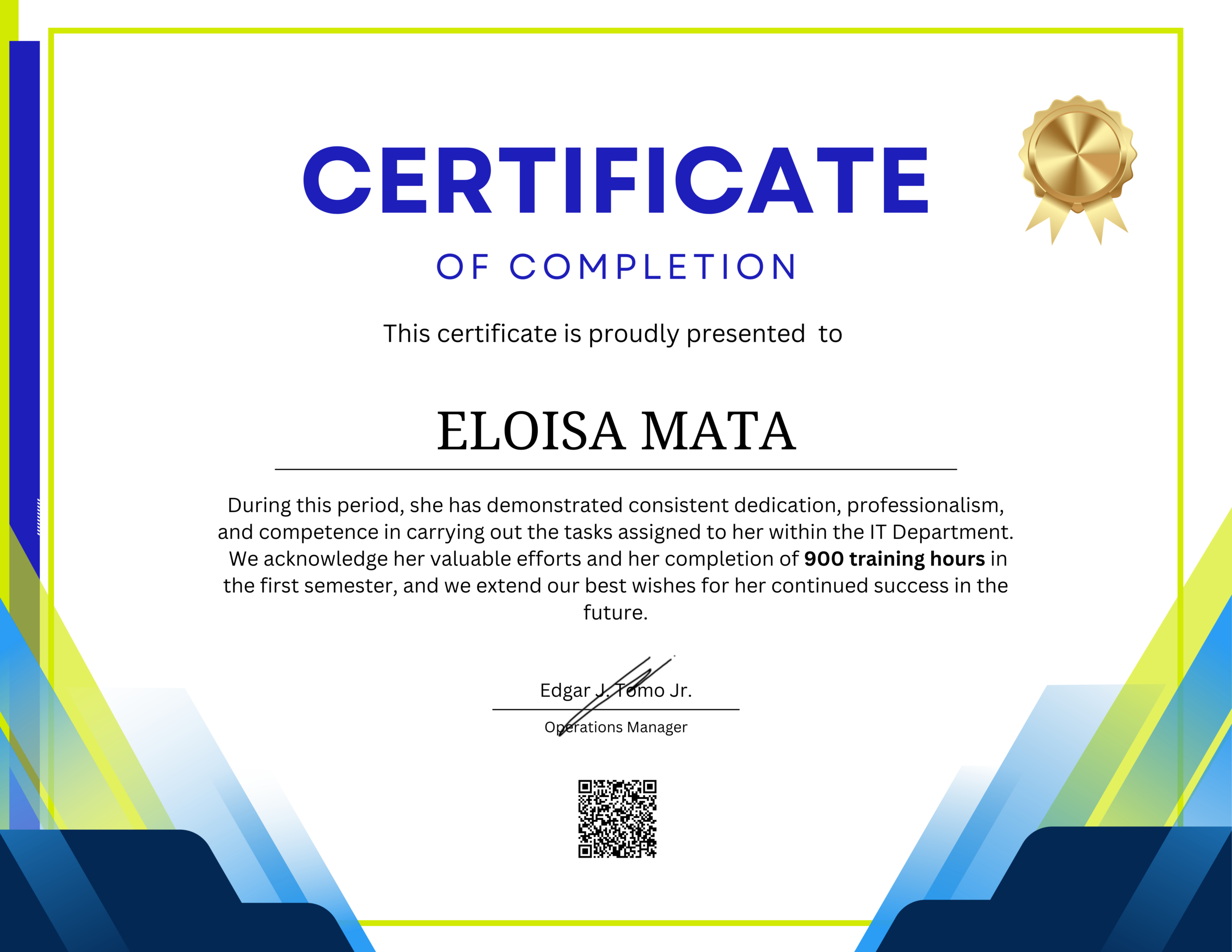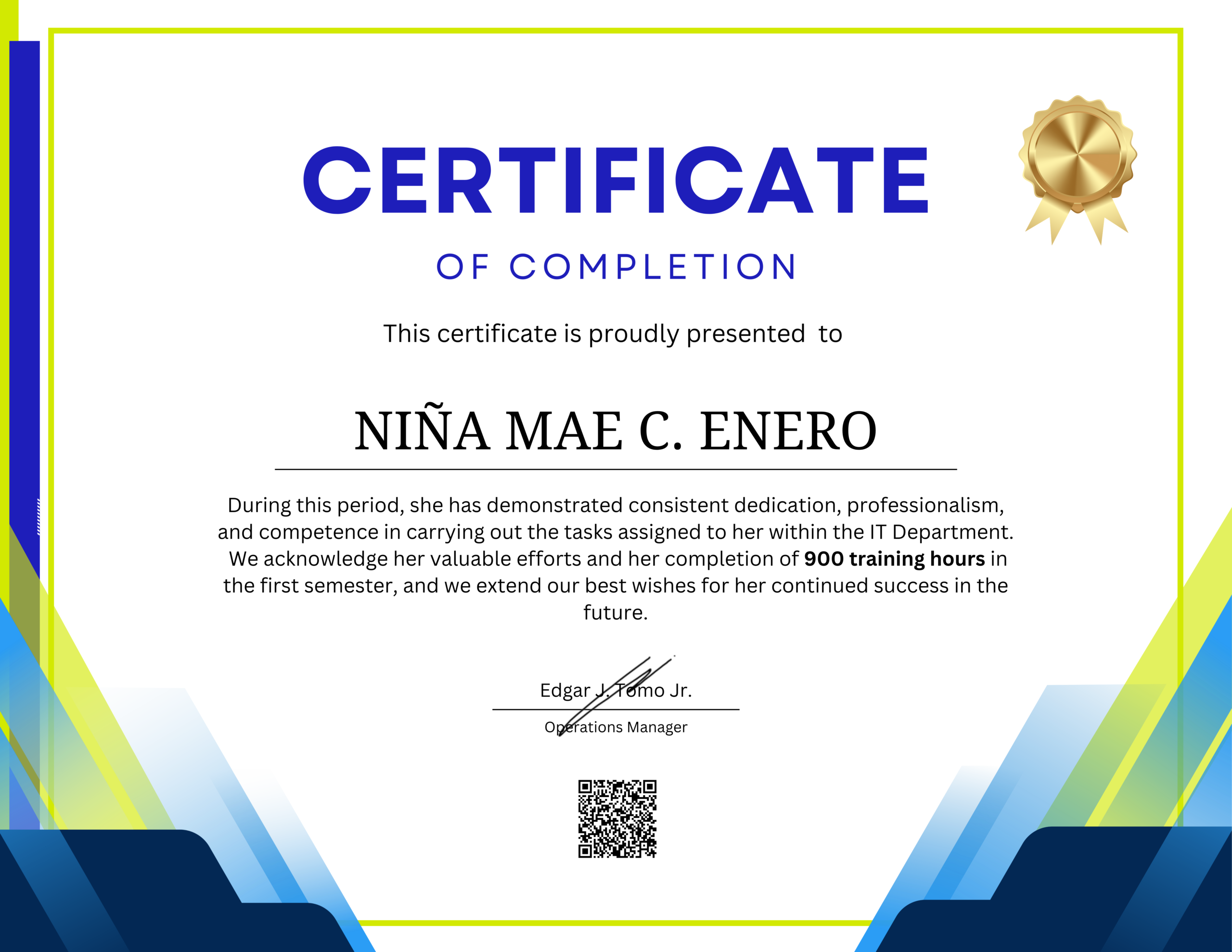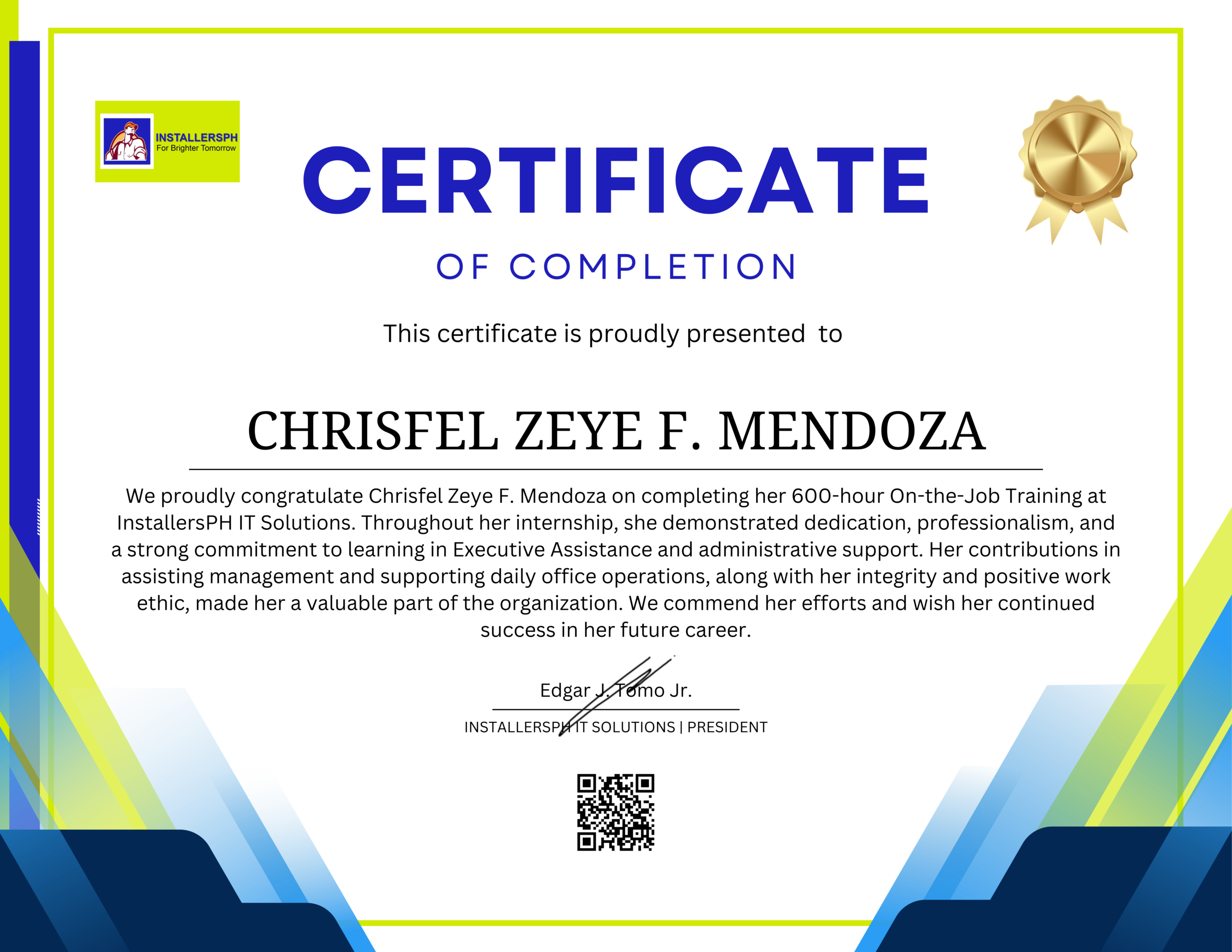The On-the-Job Training Experience of Niña Mae C. Enero Acknowledging Dedication in IT On-the-Job Training. During her on-the-job training period, she demonstrated consistent dedication and a strong sense of responsibility in fulfilling …
The Impact of CCTV Cameras on Home Insurance Rates.

Introduction
In today’s dynamic landscape of home security, the integration of Closed-Circuit Television (CCTV) cameras has emerged as a cornerstone in safeguarding residential properties. Beyond their primary function of surveillance, CCTV systems have far-reaching implications, including potential impacts on home insurance rates. This comprehensive article delves into the intricate interplay between CCTV cameras and home insurance premiums, shedding light on the multifaceted dynamics at play.
Evolution of CCTV Cameras in Home Security
The evolution of CCTV technology has revolutionized the way homeowners approach security measures. From bulky, analog systems to sleek, high-definition cameras equipped with advanced features, the capabilities of CCTV systems have undergone remarkable advancements. Modern CCTV cameras boast features such as infrared night vision, motion detection, two-way audio communication, and remote access via smartphone applications. This evolution has empowered homeowners with unprecedented levels of control and monitoring over their properties, bolstering overall security measures.
Deciphering Home Insurance Rates: Factors at Play
Home insurance premiums are determined by a myriad of factors, each contributing to the overall risk profile associated with insuring a property. While the specific criteria may vary among insurance providers, common factors influencing insurance rates include:
a. Location
The geographical location of a property plays a pivotal role in assessing insurance risk. Properties situated in areas prone to natural disasters, crime, or environmental hazards may command higher premiums due to increased risk exposure.
b. Property Characteristics
The age, size, construction materials, and structural integrity of a property are significant determinants of insurance rates. Older homes or those constructed with high-risk materials may incur higher premiums.
c. Security Features
The presence of security enhancements, such as alarm systems, deadbolt locks, and, notably, CCTV cameras, can mitigate risks and potentially lower insurance premiums.
d. Claim History
A homeowner’s claims history, including the frequency and severity of past insurance claims, directly impacts insurance rates. A history of frequent claims may signal higher risk and result in elevated premiums.
The Influence of CCTV Cameras on Home Insurance Rates
The installation of CCTV cameras has the potential to exert a tangible influence on home insurance rates, primarily through risk mitigation and enhanced security measures:
a. Deterrence of Criminal Activity
One of the most significant benefits of CCTV cameras is their deterrent effect on criminal activity. Studies have shown that the mere presence of visible surveillance cameras can dissuade potential intruders and burglars, reducing the likelihood of property crimes. As a result, insurance providers may view properties equipped with CCTV systems as lower risk and offer corresponding discounts on insurance premiums.
b. Evidentiary Support for Claims
In the unfortunate event of a burglary, vandalism, or other property-related incidents, CCTV footage serves as invaluable evidence for insurance claims. The recorded video footage provides insurers with a comprehensive understanding of the circumstances surrounding the incident, facilitating a smoother claims process and reducing the likelihood of disputes. This enhanced evidentiary support can lead to more favorable outcomes for homeowners filing insurance claims.
c. Mitigation of Liability Risks
Beyond deterring external threats, CCTV cameras also play a crucial role in mitigating liability risks associated with accidents or injuries on the homeowner’s property. In instances where third parties, such as visitors or service providers, sustain injuries or property damage, the availability of CCTV footage can clarify the sequence of events and liability, potentially mitigating legal liabilities for the homeowner. Insurance providers recognize the risk mitigation benefits associated with CCTV surveillance and may adjust premiums accordingly.
Factors Influencing Insurance Discounts for CCTV Installations
While the installation of CCTV cameras can potentially result in insurance discounts, the extent of these discounts may vary based on several factors:
a. Quality and Coverage of CCTV Systems
Insurance providers may offer more substantial discounts for CCTV systems equipped with advanced features, such as high-definition resolution, wide-angle coverage, motion detection, and remote monitoring capabilities. Comprehensive coverage of key areas around the property enhances the effectiveness of the surveillance system and may merit higher premium reductions.
b. Professional Installation and Maintenance
Proper installation and ongoing maintenance of CCTV cameras are imperative for optimal performance and reliability. Insurance companies may require evidence of professional installation and adherence to maintenance protocols to qualify for premium discounts. Additionally, regular maintenance ensures that the CCTV system remains functional and preserves its effectiveness in deterring threats.
c. Geographical Considerations
The geographical location of the property and prevailing crime rates within the area are pivotal factors in determining insurance premiums. Homes situated in high-crime areas may experience greater benefits from CCTV installations, resulting in more significant discounts on insurance premiums. Insurance providers assess the localized risk factors and adjust premiums accordingly to reflect the security measures implemented by homeowners.
d. Integration with Other Security Systems
The integration of CCTV cameras with complementary security systems, such as alarm systems, motion sensors, and smart home automation platforms, can enhance overall security efficacy. Insurance providers may incentivize homeowners who adopt comprehensive security solutions by offering bundled discounts on insurance premiums. The seamless integration of multiple security measures strengthens the protective barrier around the property and reduces insurance risk exposure.
Maximizing the Benefits of CCTV Surveillance for Insurance Savings
To maximize the potential benefits of CCTV surveillance for insurance savings, homeowners should consider the following strategies:
a. Conduct a Security Assessment
Begin by conducting a comprehensive security assessment of the property to identify vulnerabilities and determine the optimal placement of CCTV cameras. Assess high-risk areas, such as entry points, windows, and blind spots, and prioritize surveillance coverage accordingly.
b. Invest in High-Quality Surveillance Equipment
Select CCTV cameras that offer high-definition resolution, wide-angle coverage, night vision capabilities, and advanced features such as motion detection and remote monitoring. Opt for reputable brands known for reliability and durability to ensure long-term performance.
c. Ensure Proper Installation and Maintenance
Engage professional installers to ensure the proper placement, alignment, and configuration of CCTV cameras. Adhere to manufacturer guidelines for installation and conduct regular maintenance checks to ensure the continued functionality of the surveillance system.
d. Notify Your Insurance Provider
Inform your insurance provider of the installation of CCTV cameras and inquire about potential discounts or premium adjustments. Provide documentation, such as proof of installation and equipment specifications, to support your request for premium reductions.
e. Explore Additional Security Measures
Consider integrating CCTV surveillance with other security enhancements, such as alarm systems, motion sensors, and smart locks, to create a layered security approach. Bundling multiple security measures may qualify you for additional discounts on insurance premiums.
Conclusion
In conclusion, the integration of CCTV cameras represents a proactive approach to bolstering home security while potentially reducing insurance costs. By deterring criminal activity, providing evidentiary support for insurance claims, and mitigating liability risks, CCTV surveillance offers multifaceted benefits for homeowners. Insurance providers recognize the value of CCTV installations in minimizing risks and may offer corresponding discounts on insurance premiums. To leverage the full potential of CCTV surveillance for insurance savings, homeowners should invest in high-quality equipment, ensure proper installation and maintenance, and explore integration with complementary security systems. By adopting a comprehensive security strategy that incorporates CCTV surveillance, homeowners can safeguard their properties, deter threats, and enjoy potential cost savings on home insurance premiums in the long run.
Related Articles
The On-the-Job Training Experience of Niña Mae C. Enero Acknowledging Dedication in IT On-the-Job Training. During her on-the-job training period, she demonstrated consistent dedication and a strong sense of responsibility in fulfilling …
The On-the-Job Training Experience of Chrisfel Zeye F. Mendoza Introduction. On-the-Job Training (OJT) plays a vital role in preparing students for the professional world by allowing them to apply academic knowledge in …



